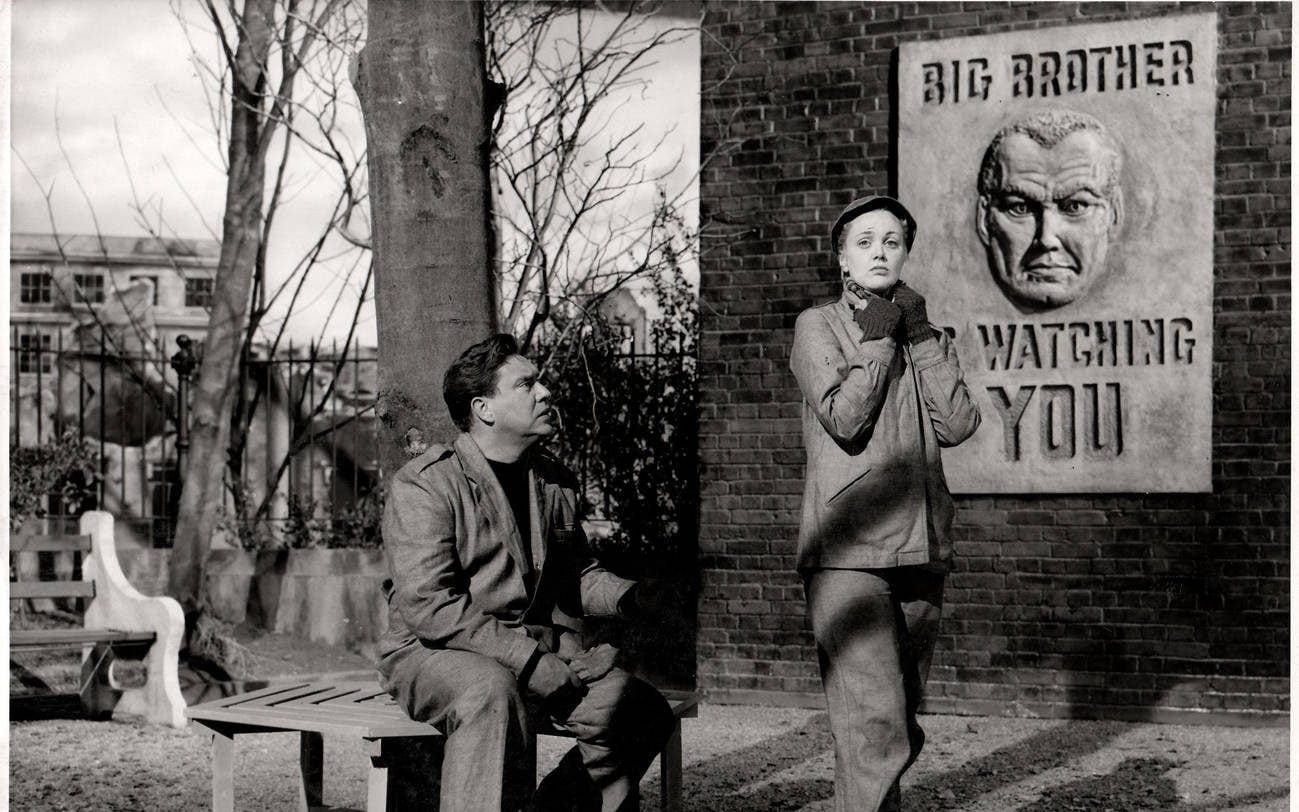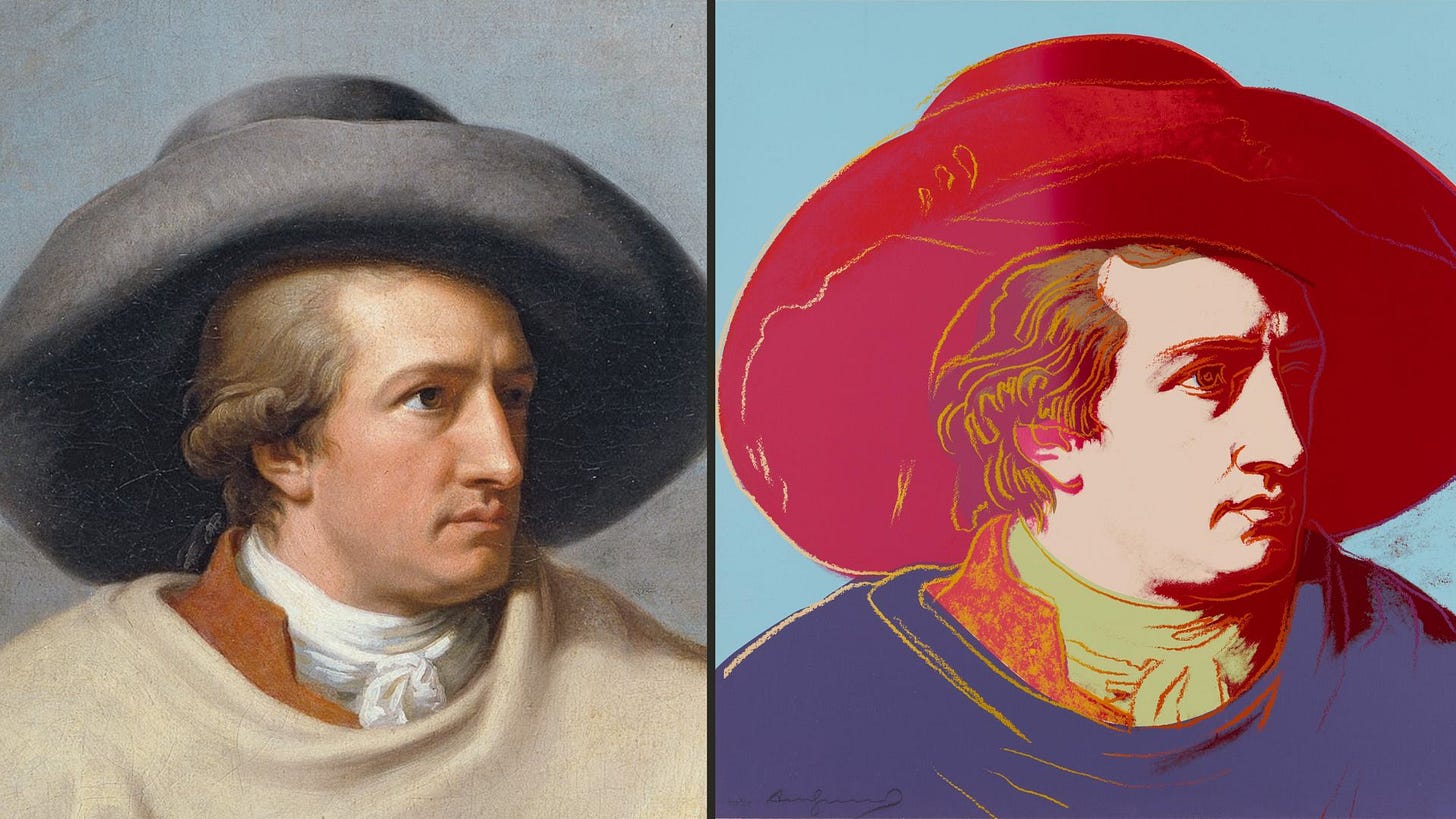On 'Fighting Windmills' and 'Orwellian Nightmares'
Is this a 'Faustian' situation? Is this very 'Kafkaesque'?
‘I’m not going to fight windmills here’ - I stated while having lunch with two of my colleagues several years back in London office.
‘Fighting windmills?’ - asked my British colleague - ‘Is that a Russian expression?’
My Polish colleague came to my rescue:
‘No, it’s a reference to Cervantes’ idealistic Don Quixote. The main character goes mad and imagines that windmills are evil dragons and fights them.’
After my reference was clarified our conversation carried on to other matters. But interestingly enough, this small pause in the flow of our chat made me think about literary references and how much they become a part of our collective way of thinking.
What caught my attention was that my Polish colleague instantly understood the wisdom of Cervantes brilliant novel by just hearing two words ‘fighting windmills’. For those unfamiliar with this expression, it may seem baffling, but to those who are acquainted with it, it unveils the profound wisdom encapsulated within Cervantes' extensive 1,200-page novel about a misguided idealist.
In some sense, this reference has become a Russian expression. Almost everyone in Russia, whether they read Cervantes’ masterpiece or not, would have known what image I’m referring to when I said ‘fighting windmills’.
There are literary images however, that carry a clear meaning for the British people but are incomprehensible for Russian. One such example is the expression ‘Orwellian nightmare’. (Oh, irony)
I once referred to something being 'an Orwellian nightmare’ during a family dinner conversation in Moscow, where almost everyone was over 50 years old of age, and felt that my reference fell on deaf ears. Those people sitting next to me knew what ‘fighting windmills’ or what ‘Kafkaesque’ means, but had no idea what Orwell’s ‘1984’ tries to convey.
I can understand why.
For decades, Soviet censorship banned Orwell’s books, and famous stories such as ‘1984’ were unknown to the public. In other words, they were living the ‘Orwellian nightmare’ without suspecting it.
This changed after the Soviet collapse and I’ve personally noticed that Orwell’s fame took a steep rise in Moscow in the last decade. The younger (intellectual) generation will likely understand what you mean if you refer to some political situation as ‘the Orwellian nightmare’.
Once again, this is where the true power of great literature lies, because those who know Orwell and read ‘1984’ instantly imagine a complex web of ideas when they hear the expression ‘Orwellian nightmare’.
In 1988, a British-American journalist and strong admirer of George Orwell - Christopher Hitchens, traveled to then-communist Prague to attend one of Vaclav Havel's clandestine 'Charter 77' committees. Hitchens made a promise to himself that he was going to be the first journalist who would write about Prague but not use a cliché reference to something being ‘Kafkaesque’.
During the committee meeting, however, the communist secret police broke in and arrested Hitchens:
‘When I asked why I was being detained, I was told that I had no need to know the reason! Totalitarianism is itself a cliché (as well as a tundra of pulverising boredom) and it forced the cliché upon me in turn. I did have to mention Kafka in my eventual story.’
Hitchens was arrested in the same way as the character of Joseph K., from Kafka’s story ‘The Trial’. Joseph K. is arrested and put into prison for committing a crime that is never revealed to him.
Hitchens's story illustrates that geniuses like Kafka have the ability to conjure these subliminal images by keenly observing the direction in which the world is progressing.
Kafka, for example, worked as an insurance officer at the Worker’s Accident Insurance Institute in Prague. It was an exceedingly bureaucratic and soulless position that served as Kafka's inspiration to depict in his work 'The Trial' the harrowing experience of an individual trapped in the clutches of a bureaucratic machine.
As his contemporary Stefan Zweig wrote about bureaucracy:
“Formerly man had only a body and a soul. Now he needs a passport as well for without it he will not be treated like a human being.”
There’s a saying that ‘simple people know what’s happening right now, gods know what will happen in the future; but wise men know what is imminent’
Kafka, of course, couldn’t have predicted the coming horrors of the 20th century and the millions of people who were going to die in the hands of bureaucratic machines of emerging tyrannies. The Gulag labour camps of the Soviet Union for example, where millions of ordinary people were arrested and tortured for no reason.
No, Kafka was not a god, but he was a wise man who saw the imminence of that coming.
I was always fascinated by literary references such as Kafkaesque or Orwellian. I will dare to say that perhaps it was this obsession that converted me into being a voracious and avid book lover.
Imagine a person who doesn’t know what a reference to something being Kafkaesque, Orwellian, Dickensian, Proustian, Borgesian, Dantesque, Faustian, Lovecraftian means. Just imagine how much narrower is the worldview of such person.
I was once such person and will remain as such to a degree throughout my life.
In my previous letter to you, my dear reader, I told you about Goethe, one of my favourite poets of all time. In fact, Goethe coined another literary reference that you’ve likely heard in a conversation - ‘Faustian deal’.
Out of all literary references this is one of my favourites.
In his tragic play called Faust, Goethe tells the story of the scholar Heinrich Faust, who makes a pact with the devil, Mephistopheles. Faust is dissatisfied with his life's accomplishments and makes a deal with the devil to gain knowledge, pleasure, and worldly success.
Faust sacrifices his morality, ethics, and integrity to satisfy his limitless desires. We call someone Faustian when we want to point out someone whose sole principle is gain or relentless ambition. (I’m guessing you can imagine many CEOs of our modern day who can fit this description).
Fame was and is the sister of giants. She works through extremes: either monsters or prodigies, abhorred or applauded. The way something is done matters to me. My ethics, morality, and integrity define who I am as a person. The leitmotif of Goethe’s ‘Faust’ touches upon this and thus the term ‘Faustian’ was coined.
Interestingly enough once we learn about the meaning of references such as Kafkaesque, Faustian deal, or Orwellian nightmare, we can’t stop referring to them once we witness them in real life.
It’s almost impossible not to refer to an ‘Orwellian nightmare’ when you hear that Russian men can be drafted into the army via email today. Or, when you witness the disregard of some modern billionaires of any moral or ethical principles - you start to wonder whether they - like the hero of Goethe’s tragic Faust - made the deal with the devil.
Hitchens felt himself trapped as a writer when the secret communist police arrested him in Prague. He asked himself: “How can I avoid the term ‘Kafkaesque’ when what happened to me is precisely ‘Kafkaesque’?”
My dear reader might ask - how do those kind of powerful references emerge?
To respond I would have to repeat the quote I mentioned before: ‘simple people know what’s happening right now, gods know what will happen in the future; but wise men know what is imminent’
Kafka, Orwell, Goethe, Cervantes were wise men. Whether it was the battle between idealism and realism of Cervantes’s Don Quixote; or, the soulless power of bureaucratic machine of Kafka’s ‘The Trial’; or, Faust’s treason of morality in Goethe’s tragic play. Those geniuses told us about the eternal imminent battles that we all must fight, and then encapsulated those truths into short literary references that we use today.
The battles continue to our day and new references keep emerging, references such as Borgesian or Nabokovian, for example, slip into our language without us even being aware of them.
Do you have favourite literary references? Are there any that I’ve missed?









I just finished your interview with Ruth Scurr on her book on Napoleon’s Gardens. Marvelous. Added it to my holiday gift list. I always stayed away from Napoleon biographies because the scope tends to be so sweeping and grand. Scurr is making him approachable.
I am an unreconstructed “windmill tilter” so I really liked the newsletter. Great stuff.
Orwell, Kafka and Goethe are swirling together in the metaphorical whirlpool we are currently living in, and I think many of us feel as if we are tilting at windmills, trying to stop the tide. Unfortunately, people who have even heard of Orwell, Kafka and Goethe are now in the minority and makeup tips on TikTok are the height of culture, at least here in the US. This is why I appreciate so much the work that you are doing.